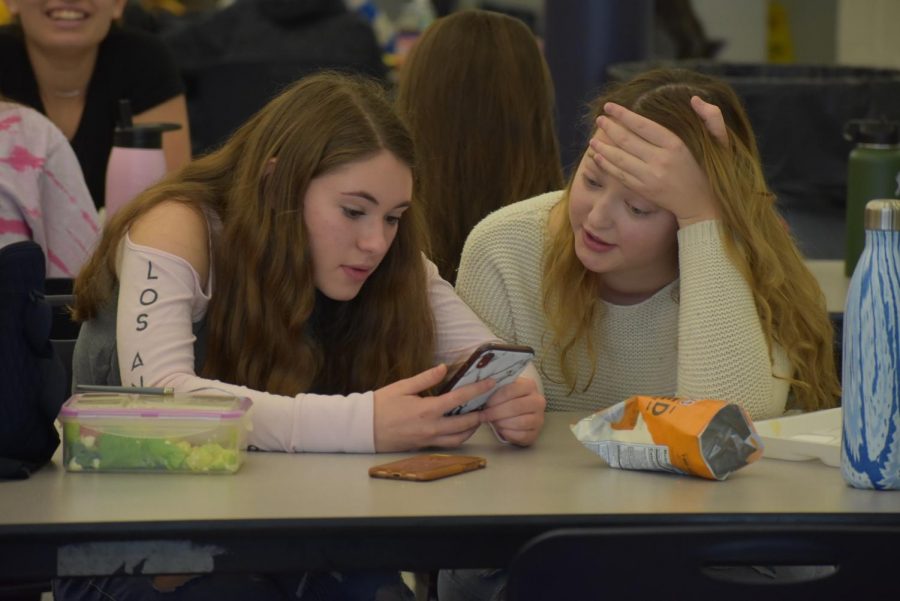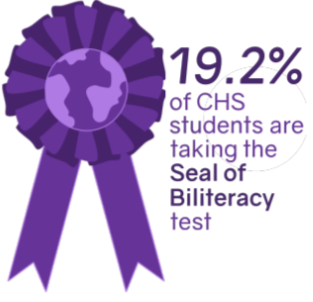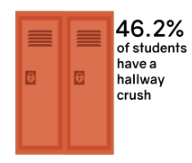Abbreviations spell out confusion for older texters
Left to right, juniors Rachel Fisher of Ocean and Olivia McCarthy of Howell view a text.
January 17, 2020
As technology evolves, the ways people communicate with one another follow suit. Over the last few years, as phone conversations began to replace face-to-face communication, texting has become its own “language” as new slang develops and new emojis emerge.
Perhaps the most commonly used abbreviation, “LOL,” which stands for “laugh out loud,” was first used to express laughter at something funny, but has developed into a mere acknowledgement of a text or simply a way to end a message with a lighter intonation.
“No one really knows what ‘lol’ means, it’s just something we say,” junior Danielle Hannah of Middletown said.
While texting is an easy and accessible form of communication, the emergence of slang and emojis has created somewhat of a disconnect between generations, with texting style and vocabulary differing greatly depending on a person’s age.
Technology teacher Laura Gesin is an avid user of emojis, especially when it comes to her favorite subject: dogs.
“[My family and I] have one group chat called ‘dogs rule’ and you are only allowed to send dog pictures and dog emojis,” Gesin said.
Although Gesin is not afraid to use emojis, she admitted that many of the nuances of texting with emoticons goes right over her head, as kids have started using them for irony rather than their intended meaning.
Many teachers and parents text more formally than young people and seldom use emojis in their text conversations. Unlike Gesin, physics teacher Steve Godkin strays away from using emojis to keep a level of formality in his messages.
“It’s definitely more grammatically correct in general, although I have started using abbreviations like ‘ur’ for ‘your,’” Godkin said. “ I’ve definitely hopped on board with some [abbreviations] because sometimes you just need it quick, but generally I use full sentences.”
Despite the differences in formality between generations, some members of younger generations take care to make sure their messages are understood when texting someone older.
“With my grandma, it is a lot more formal because she can’t see that well, so I try to make it as easy as possible for her,” sophomore James Finnegan of Brielle said.
Sophomore Ezra Shim of Spring Lake reflected on teens texting older generations as an unspoken yet understood language.
“It is kind of like a secret code,” Shim said.















